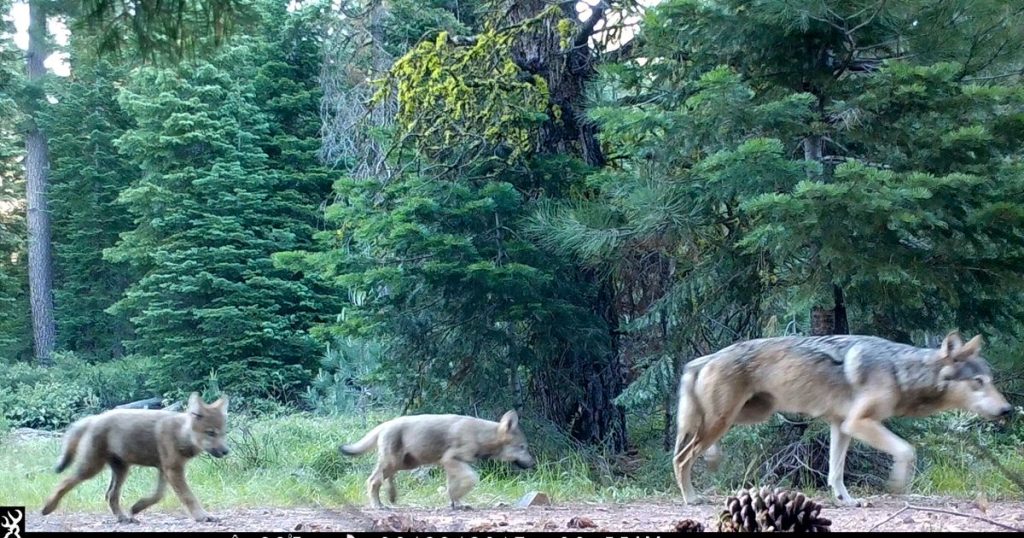The Biden administration has asked an appeals court to revive a Trump-era rule that removed Endangered Species Act protections for gray wolves in the U.S. If successful, this would allow for state oversight of wolves nationwide and potentially resume hunting in the Great Lakes region. Environmentalists had previously sued to block the lifting of protections under the Trump administration, but this new move seeks to overturn that decision.
Wolves in the U.S. have faced political and legal challenges for decades, as efforts to lift or reduce protections have been ongoing since the early 2000s. Once eradicated from much of North America, gray wolves were granted federal protections in 1974. Although their population has increased in some areas, wolves still occupy only a fraction of their historic range. Environmental groups continue to advocate for the expansion of protections to ensure the species’ recovery.
The U.S. Fish and Wildlife Service has faced numerous legal challenges over the status of gray wolves, with populations losing and regaining protections multiple times in recent years. The agency aims to strike a balance between wolf conservation and the concerns of those who live and work in areas where wolves reside. The Biden administration’s support for the Trump-era rule puts them in alignment with livestock and hunting groups, while environmental organizations oppose the move.
Efforts to restore wolf populations have been limited to specific regions, with federal officials agreeing to develop a national recovery plan by December 2025. The recent court filing suggests that the government is ready to move on from gray wolf recovery, as the species is no longer in danger of extinction. The Endangered Species Act’s goal is to prevent extinction, not necessarily restore species to their pre-western settlement numbers and range.
The Great Lakes region and other parts of the U.S. have significant wolf populations, but conflicts over hunting and conservation persist. Congress removed federal protections for wolves in the northern Rockies in 2011, leading to thousands of wolves being killed in Montana, Idaho, and Wyoming. States such as Michigan and Minnesota have previously held wolf hunts, with mixed results, while other states like Washington, Oregon, California, and Colorado do not allow public hunting of wolves.
The Biden administration has faced criticism for its decisions regarding wolf protections, with conservation groups advocating for increased federal safeguards. State lawmakers in regions like the northern Rockies are pushing for more control over wolf populations, but federal officials have determined that the species is not at risk of extinction under current hunting rules. In addition to gray wolves, the U.S. is also home to struggling populations of red wolves in the mid-Atlantic region and Mexican wolves in the Southwest, both of which are protected as endangered species.


